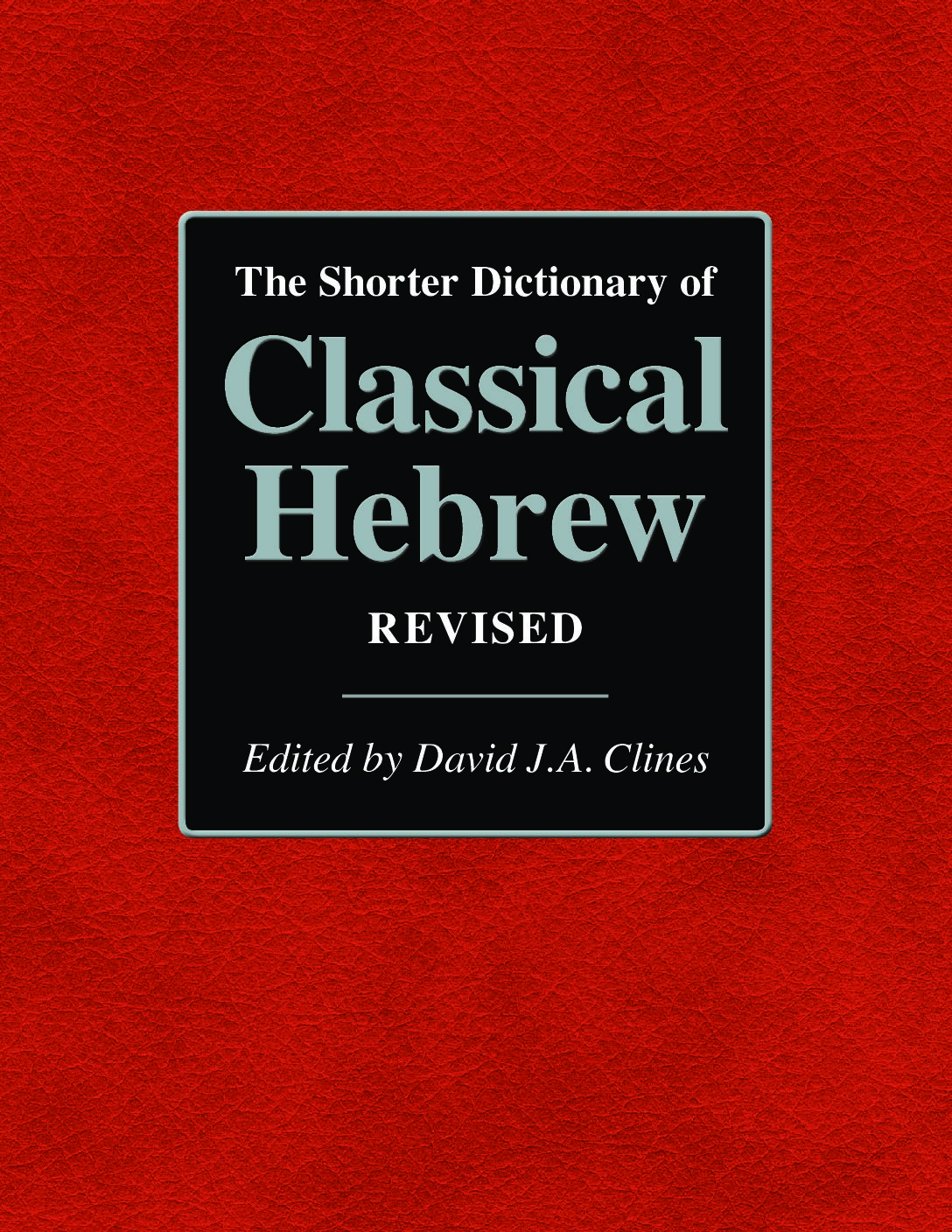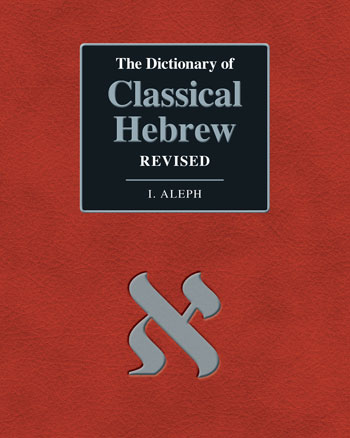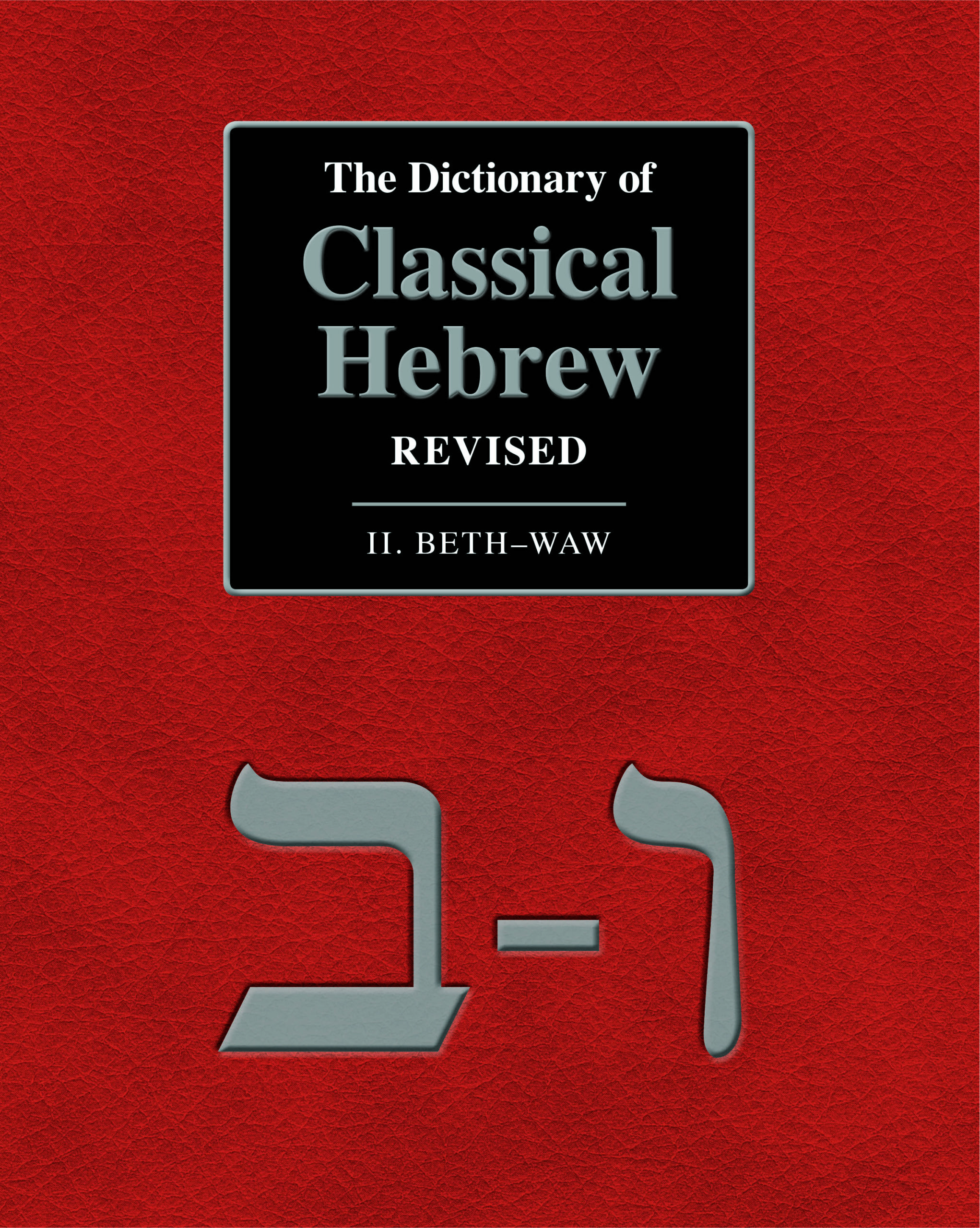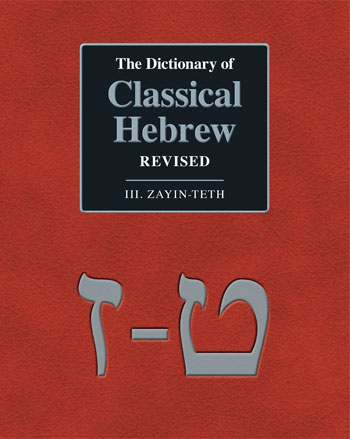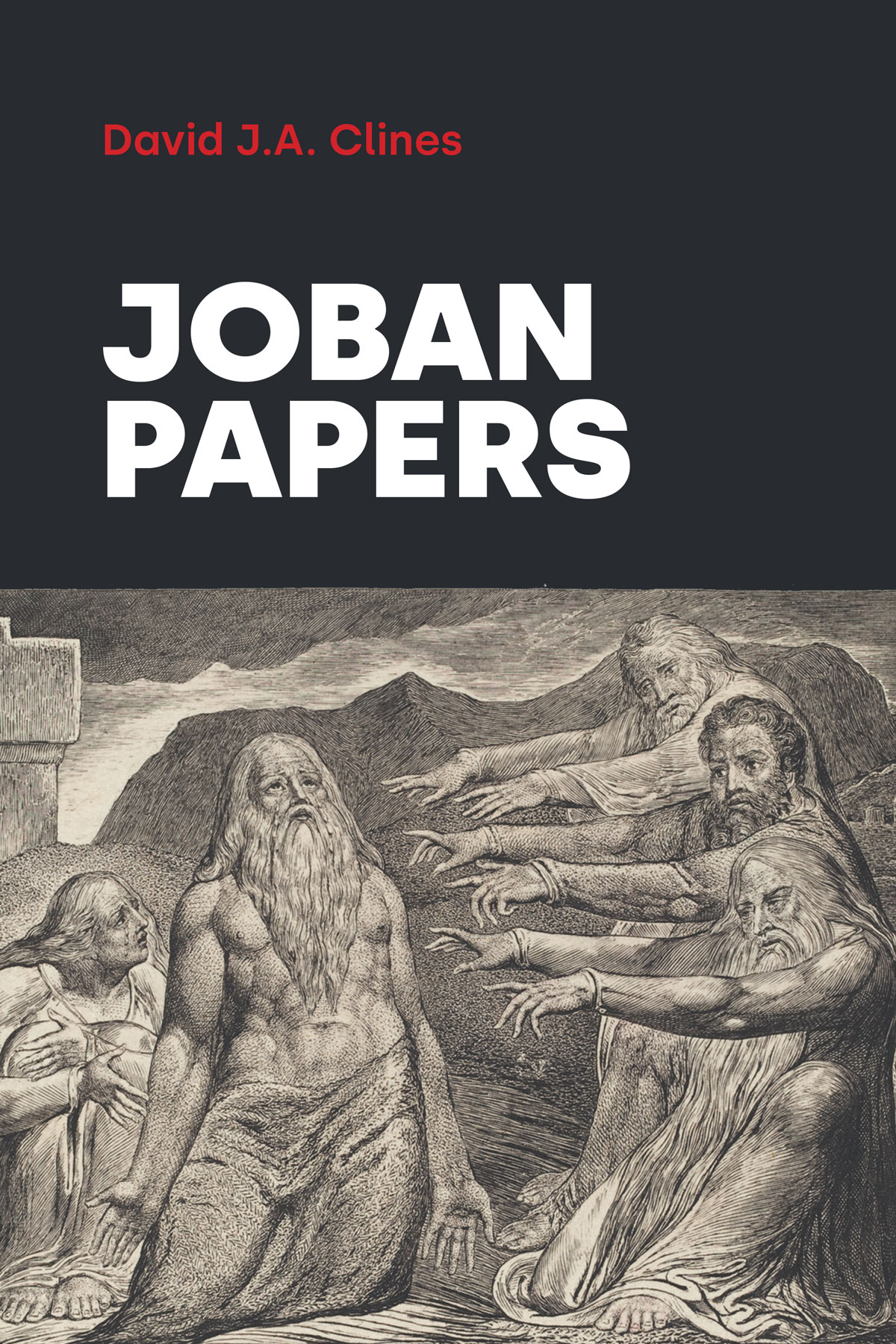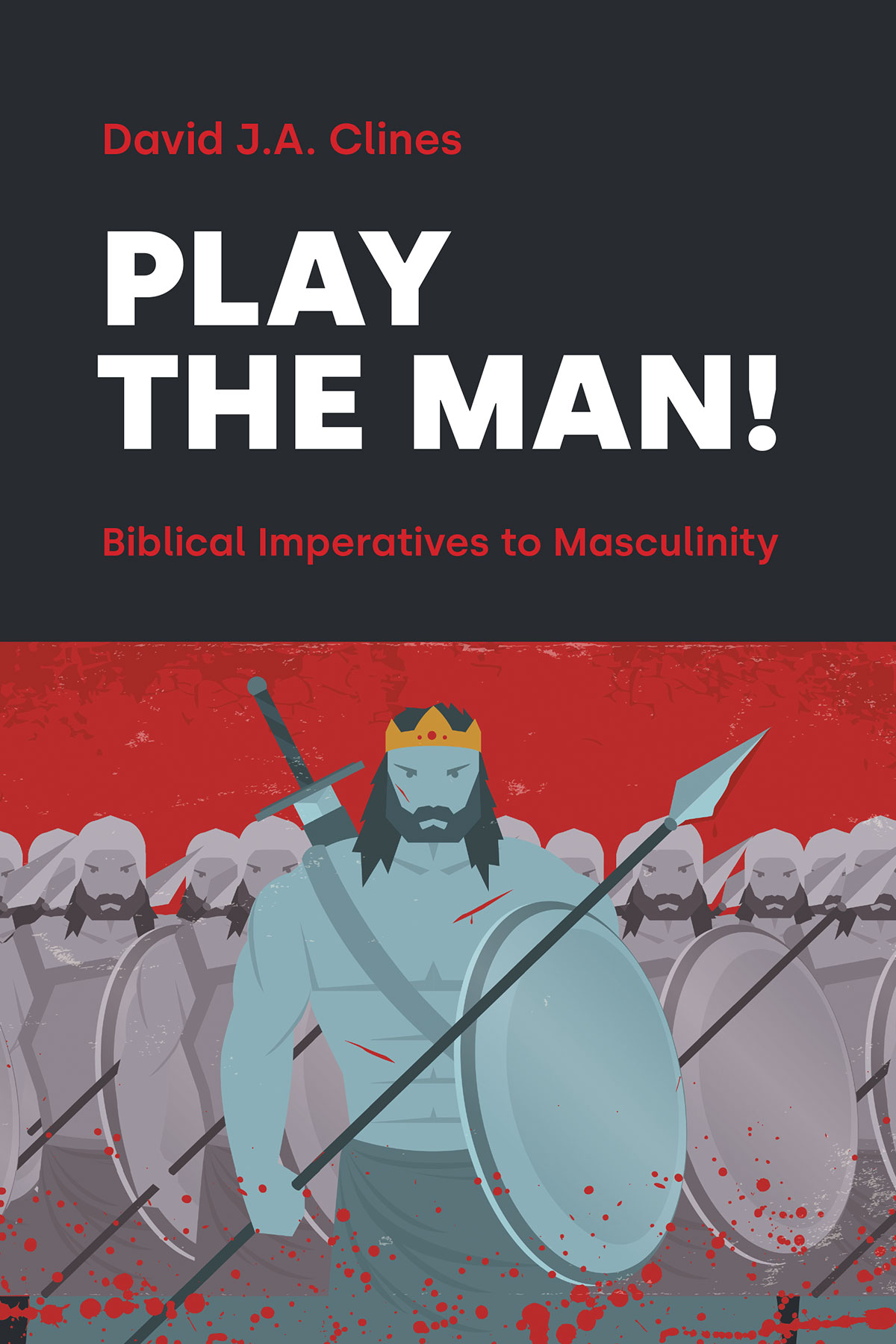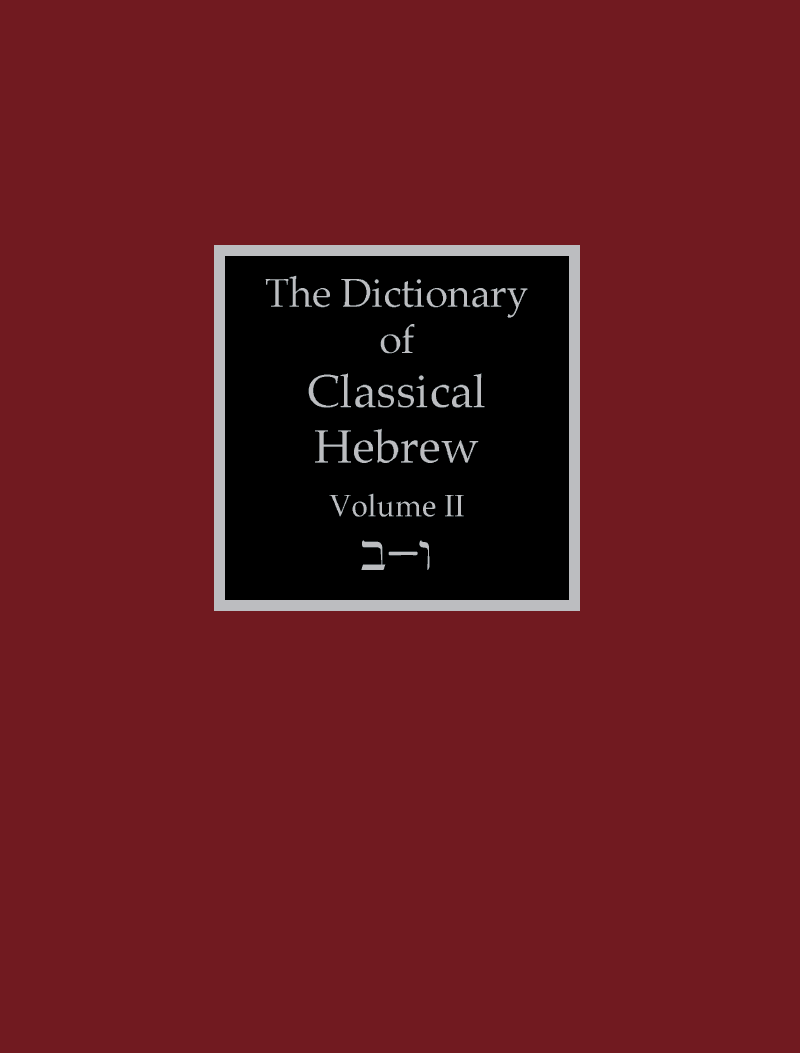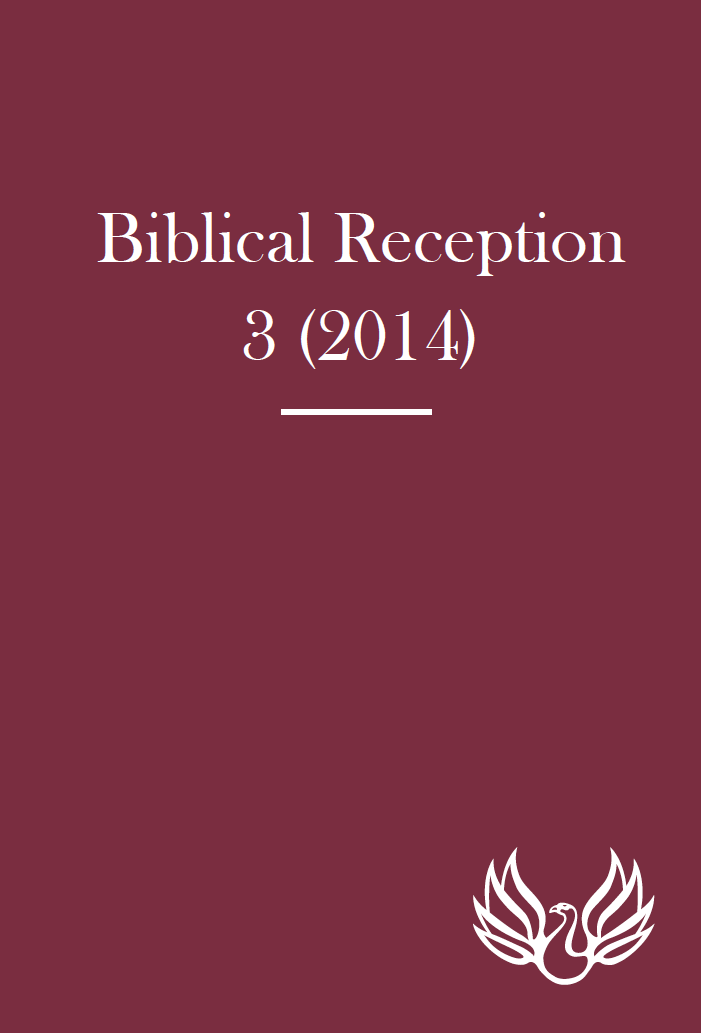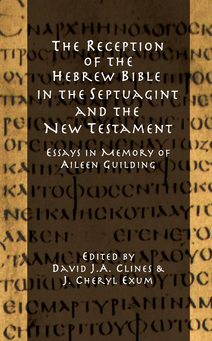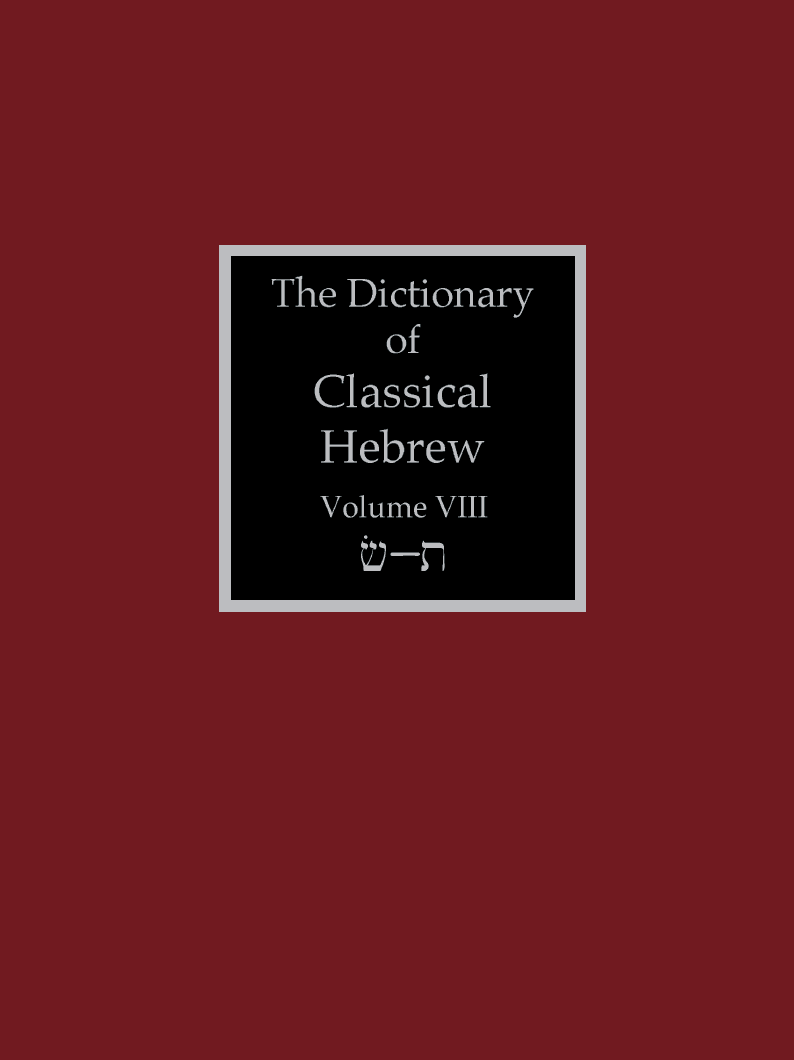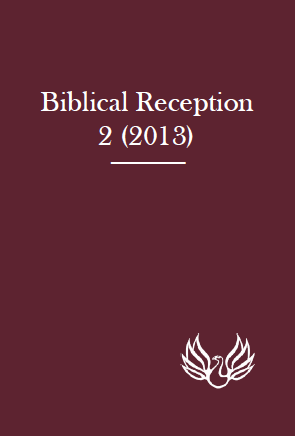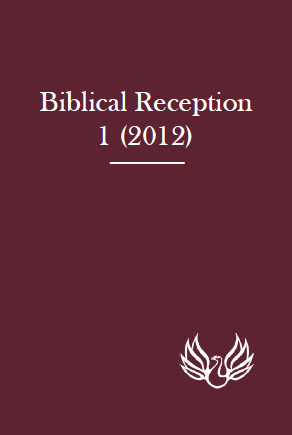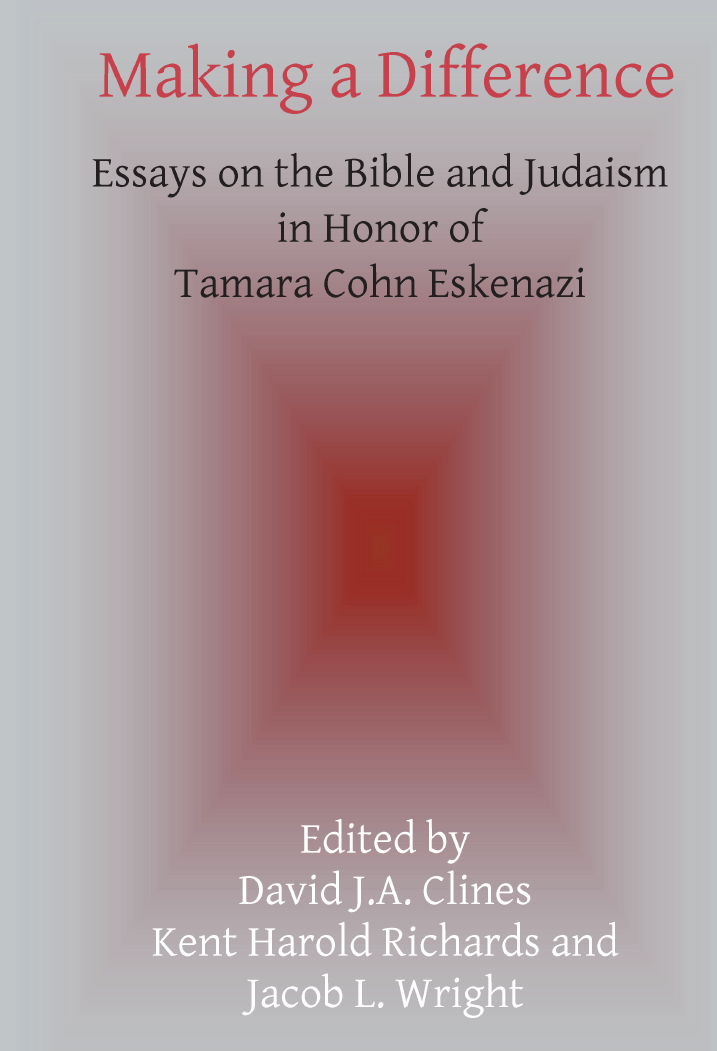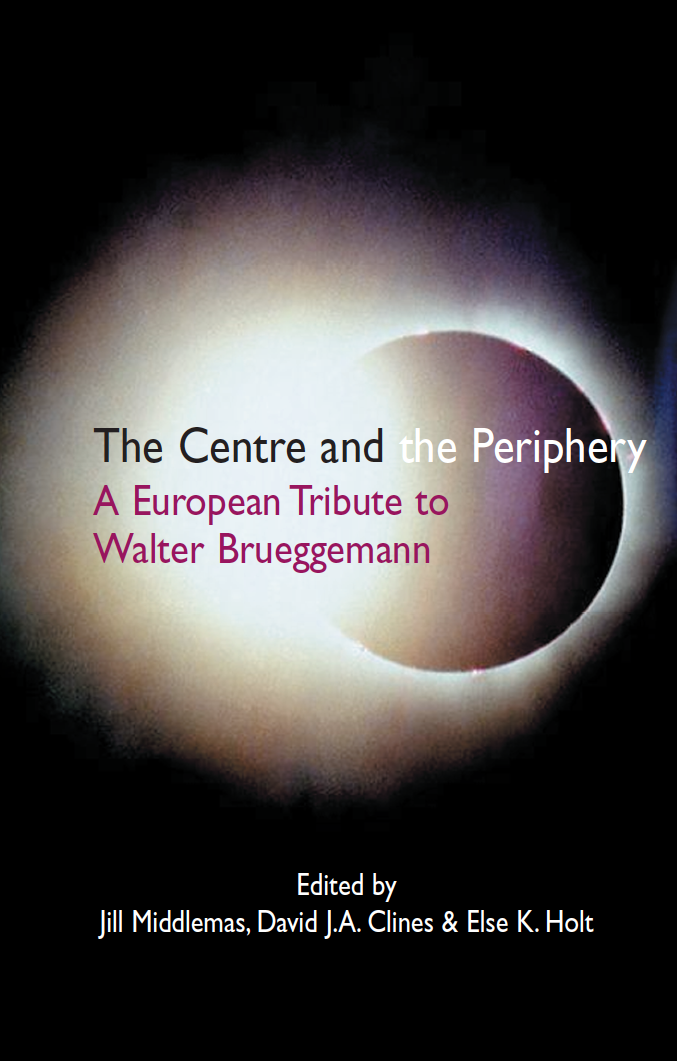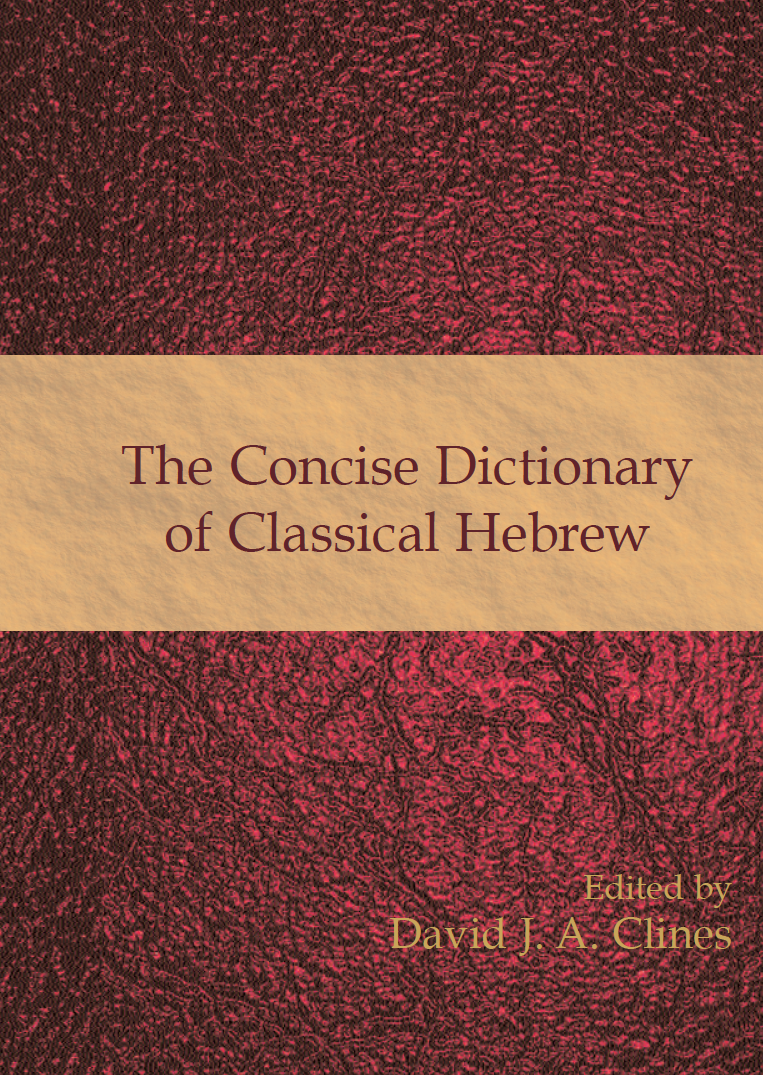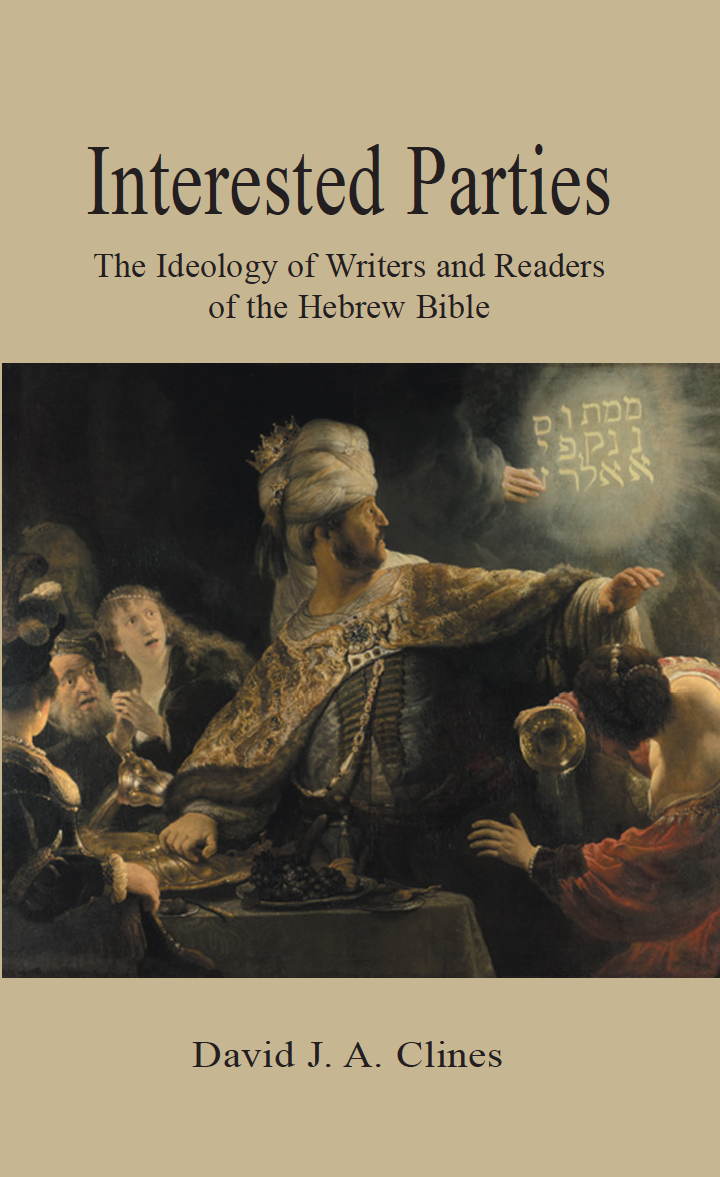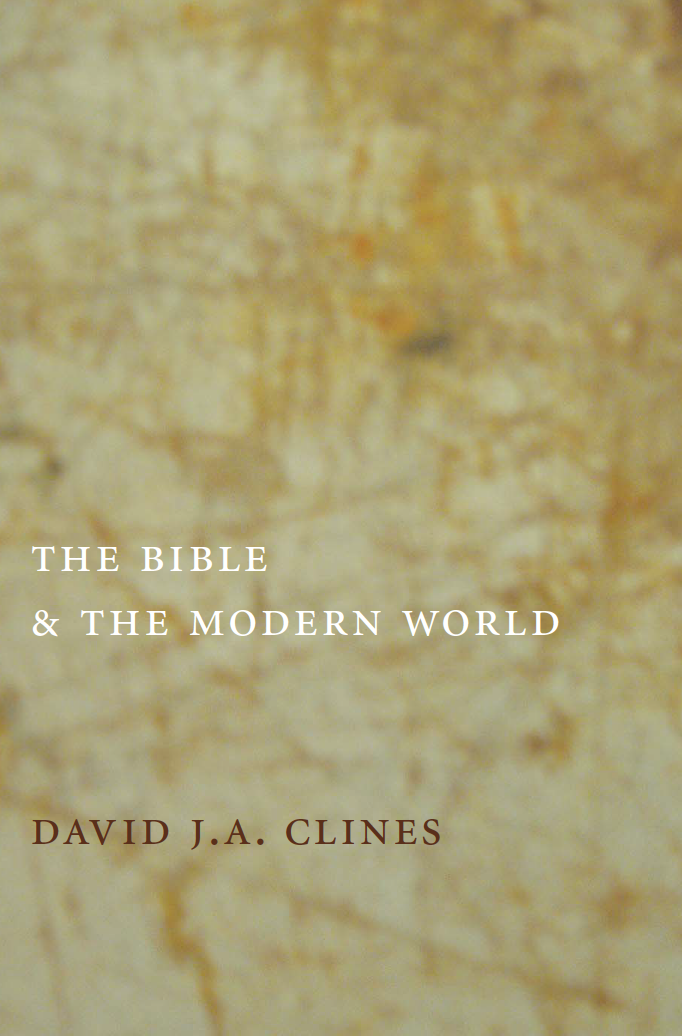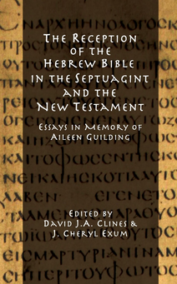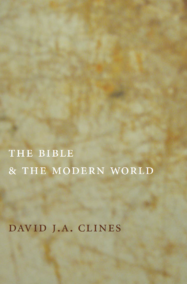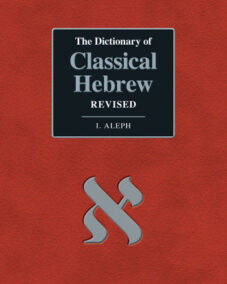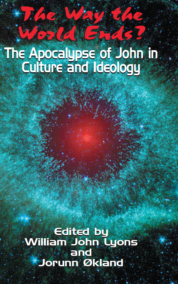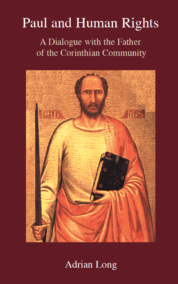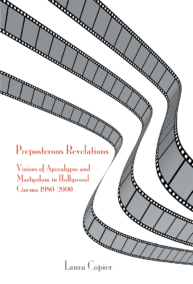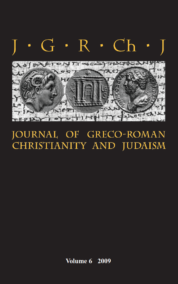The Shorter Dictionary of Classical Hebrew Revised
Published: July 2024
£250.00
The Shorter Dictionary of Classical Hebrew Revised (2024) is a single volume desk dictionary abridgement of The Dictionary of Classical Hebrew Revised (DCHR) (2018–2028). The Shorter Dictionary is over 825,000 words in length, placing into a single volume 1/6th of the material of the complete DCHR (over 5 million words), and is designed to be a replacement for BDB (the standard 1906 English lexicon of Hebrew).
The Shorter Dictionary contains more than 6,420 Hebrew words not in BDB, and refers to many newly published texts, including 540 Dead Sea Scrolls and 4,000 ancient Hebrew inscriptions, making it the most thorough Hebrew dictionary ever produced.
Every Hebrew word in The Shorter Dictionary is followed immediately by an English translation (except for the variant forms of a word and the byforms), so that The Shorter Dictionary can be easily understood by a person with little or no Hebrew.
Further features of the dictionary include:
–Scope—The Shorter Dictionary includes not only Biblical Hebrew but also all Classical Hebrew (pre-200 ce), i .e . Ben Sira, Dead Sea Scrolls, inscriptions.
–Syntagmatic analysis—shows examples of subjects and objects of verbs, those of which a noun is subject or object, etc.
–Occurrence statistics—for each word in the four corpora of Classical Hebrew: Hebrew Bible, Ben Sira, Dead Sea Scrolls, Inscriptions—and for each voice (binyan) of a verb.
–Parallels and oppositions. Shows all words used in parallel or opposition in texts.
–A notation of: 4,285 byforms (words with the same meaning and similar form) identified for the first time; 717 verbal nouns (nouns derived from a verb) -with their own articles (not previously shown in Hebrew lexica); 345 denominative verbs (verbs derived from a noun); and the semantic field to which every word belongs (a totally new feature for Hebrew dictionaries).
–An abbreviated version of DCHR’s extensive bibliographies is provided in The Shorter Dictionary.
Not only is The Shorter Dictionary three times longer than The Concise Dictionary of Classical Hebrew (2009)—also The Concise Dictionary is an abbreviation of the original Dictionary of Classical Hebrew (1993–2016), whereas The Shorter Dictionary of Classical Hebrew Revised contains the improved and expanded approach of DCHR (2018–2028).
The Shorter Dictionary (2024) has always planned to be released during the longer period of publication for the 9 volumes of DCHR. From 2019 to 2022 David J.A. Clines, prior to his final illnesses and death:
–completed every necessary editorial task for the future volumes;
–oversaw the preparation of and collation of most materials;
–and provided the means by which the project Research Associate, David Stec, could collate The Shorter Dictionary as well as bring the remaining DCHR volumes to publication.
List price: £250 / $400 / €300
Scholars' price: £125 / $200 / €150 (use code 'scholar' at checkout)
DCHR 1–9 Subscribers' price: £100 / $160 / €120 (email: phoenix.bibs@sheffield.ac.uk for further information)
The Shorter Dictionary of Classical Hebrew Revised
£250.00
The Shorter Dictionary of Classical Hebrew Revised (2024) is a single volume desk dictionary abridgement of The Dictionary of Classical Hebrew Revised (DCHR) (2018–2028). The Shorter Dictionary is over 825,000 words in length, placing into a single volume 1/6th of the material of the complete DCHR (over 5 million words), and is designed to be a replacement for BDB (the standard 1906 English lexicon of Hebrew).
The Shorter Dictionary contains more than 6,420 Hebrew words not in BDB, and refers to many newly published texts, including 540 Dead Sea Scrolls and 4,000 ancient Hebrew inscriptions, making it the most thorough Hebrew dictionary ever produced.
Every Hebrew word in The Shorter Dictionary is followed immediately by an English translation (except for the variant forms of a word and the byforms), so that The Shorter Dictionary can be easily understood by a person with little or no Hebrew.
Further features of the dictionary include:
–Scope—The Shorter Dictionary includes not only Biblical Hebrew but also all Classical Hebrew (pre-200 ce), i .e . Ben Sira, Dead Sea Scrolls, inscriptions.
–Syntagmatic analysis—shows examples of subjects and objects of verbs, those of which a noun is subject or object, etc.
–Occurrence statistics—for each word in the four corpora of Classical Hebrew: Hebrew Bible, Ben Sira, Dead Sea Scrolls, Inscriptions—and for each voice (binyan) of a verb.
–Parallels and oppositions. Shows all words used in parallel or opposition in texts.
–A notation of: 4,285 byforms (words with the same meaning and similar form) identified for the first time; 717 verbal nouns (nouns derived from a verb) -with their own articles (not previously shown in Hebrew lexica); 345 denominative verbs (verbs derived from a noun); and the semantic field to which every word belongs (a totally new feature for Hebrew dictionaries).
–An abbreviated version of DCHR’s extensive bibliographies is provided in The Shorter Dictionary.
Not only is The Shorter Dictionary three times longer than The Concise Dictionary of Classical Hebrew (2009)—also The Concise Dictionary is an abbreviation of the original Dictionary of Classical Hebrew (1993–2016), whereas The Shorter Dictionary of Classical Hebrew Revised contains the improved and expanded approach of DCHR (2018–2028).
The Shorter Dictionary (2024) has always planned to be released during the longer period of publication for the 9 volumes of DCHR. From 2019 to 2022 David J.A. Clines, prior to his final illnesses and death:
–completed every necessary editorial task for the future volumes;
–oversaw the preparation of and collation of most materials;
–and provided the means by which the project Research Associate, David Stec, could collate The Shorter Dictionary as well as bring the remaining DCHR volumes to publication.
List price: £250 / $400 / €300
Scholars' price: £125 / $200 / €150 (use code 'scholar' at checkout)
DCHR 1–9 Subscribers' price: £100 / $160 / €120 (email: phoenix.bibs@sheffield.ac.uk for further information)
The Dictionary of Classical Hebrew, Revised
Published: Nov 2023
£150.00 – £250.00
The Dictionary of Classical Hebrew Revised (DCHR) is a complete revision, with over 100,000 improvements, of the original Dictionary of Classical Hebrew (1993 —2016).
It contains 6,300 Hebrew words not in the standard lexicon of BDB, and refers to many newly published texts, including 540 Dead Sea Scrolls and 4,000 ancient Hebrew inscriptions. New features include: a notation of 3,700 byforms (words with the same meaning and similar form) identified for the first time; 700 verbal nouns (nouns derived from a verb) with their own articles (not previously shown in Hebrew lexica), 330 denominative verbs (verbs derived from a noun), and the semantic field to which every word belongs (a totally new feature for Hebrew dictionaries).
Data on synonyms have been greatly expanded, and loanwords from other languages included. Articles on personal names show (for the first time) all short forms, long forms, and alternative forms of the name, bibliographies have been updated and expanded, and 35,000 emendations of biblical texts noted. Every occurrence of each word in Classical Hebrew is noted.
All the subjects and objects of verbs are listed, and the verbs used with each noun, as well as all nouns used in a construct (genitive) relation with another noun. As with DCH, every Hebrew word in the Dictionary (except for the sections on synonyms) is followed immediately by an English translation, so that the Dictionary can be easily understood by a person with little or no Hebrew. When completed, DCHR will be 5 million words in length (equivalent to 50 standard-size books), 25% longer than DCH, and 4 times the length of BDB and HALOT.
There is a special discount price for customers subscribing to the DCHR set, and an easy payment plan (details from phoenix.bibs@sheffield.ac.uk).
The Dictionary of Classical Hebrew, Revised
£150.00 – £250.00
The Dictionary of Classical Hebrew Revised (DCHR) is a complete revision, with over 100,000 improvements, of the original Dictionary of Classical Hebrew (1993 —2016).
It contains 6,300 Hebrew words not in the standard lexicon of BDB, and refers to many newly published texts, including 540 Dead Sea Scrolls and 4,000 ancient Hebrew inscriptions. New features include: a notation of 3,700 byforms (words with the same meaning and similar form) identified for the first time; 700 verbal nouns (nouns derived from a verb) with their own articles (not previously shown in Hebrew lexica), 330 denominative verbs (verbs derived from a noun), and the semantic field to which every word belongs (a totally new feature for Hebrew dictionaries).
Data on synonyms have been greatly expanded, and loanwords from other languages included. Articles on personal names show (for the first time) all short forms, long forms, and alternative forms of the name, bibliographies have been updated and expanded, and 35,000 emendations of biblical texts noted. Every occurrence of each word in Classical Hebrew is noted.
All the subjects and objects of verbs are listed, and the verbs used with each noun, as well as all nouns used in a construct (genitive) relation with another noun. As with DCH, every Hebrew word in the Dictionary (except for the sections on synonyms) is followed immediately by an English translation, so that the Dictionary can be easily understood by a person with little or no Hebrew. When completed, DCHR will be 5 million words in length (equivalent to 50 standard-size books), 25% longer than DCH, and 4 times the length of BDB and HALOT.
There is a special discount price for customers subscribing to the DCHR set, and an easy payment plan (details from phoenix.bibs@sheffield.ac.uk).
The Dictionary of Classical Hebrew Revised. III. Zayin–Teth.
Published: Nov 2023
£150.00
The Dictionary of Classical Hebrew Revised (DCHR) (2018–2028) is a complete revision in nine volumes, with over 100,000 improvements, of the original Dictionary of Classical Hebrew (DCH) (1993–2016). When completed, DCHR will be 5 million words in length (equivalent to 50 standard-size books), 25% longer than DCH, and 4 times the length of BDB and HALOT.
The third Volume of The Dictionary of Classical Hebrew Revised, Zayin–Teth, arrives 27 years after the publication of the corresponding volume in the first edition (DCH) in 1996. Readers will find in the present volume some 32% more words (lemmas) than in the original 3rd volume, amounting to 40% more material, which consists of many thousands of additions and corrections, references to the multitude of Dead Sea Scrolls texts and inscriptions published since 1996, and a much expanded Bibliography.
The nine volumes of DCHR were originally expected to be published at intervals of approximately one year, after the first volume in August 2018. There was, after the second volume, in 2019, a pause until now. From 2019 to 2022 David J.A. Clines, prior to his final illnesses and death:
-completed every necessary editorial task for the future volumes;
-oversaw the preparation of and collation of most materials;
-and provided the means by which the project Research Associate, David Stec, could bring the remaining volumes to completion between 2023 and 2028.
David Clines wrote the Preface for this volume and David Stec completed all outstanding work including the final collation of the sets of synonyms.
The Dictionary of Classical Hebrew Revised, when completed, will contain more than 6,420 Hebrew words not in BDB, and will refer to many newly published texts, including 540 Dead Sea Scrolls and 4,000 ancient Hebrew inscriptions. New features in DCHR include: a notation of 4,285 byforms (words with the same meaning and similar form) identified for the first time; 717 verbal nouns (nouns derived from a verb) with their own articles (not previously shown in Hebrew lexica), 345 denominative verbs (verbs derived from a noun), and the semantic field to which every word belongs (a totally new feature for Hebrew dictionaries).
Data on synonyms have been greatly expanded, and loanwords from other languages included. Articles on personal names show (for the first time) all short forms, long forms, and alternative forms of each name, the Bibliography has been updated and expanded, and 35,000 emendations of biblical texts noted.
Every occurrence of each word in Classical Hebrew is noted. All the subjects and objects of verbs are listed, and the verbs used with each noun, as well as all nouns used in a construct (genitive) relation with another noun. As with DCH, every Hebrew word in the revised Dictionary (except for the variant forms of a word, the byforms and the sections on synonyms) is followed immediately by an English translation, so that the Dictionary can be easily understood by a person with little or no Hebrew.
Among the resources that have been reviewed for the present volume are:
-philological studies on Hebrew words, such as Aitken on blessing and cursing, Koller on tools, and Peters on cooking;
-handbooks on loanwords from other languages, such as Noonan on non-Semitic words, Mankowski on Akkadian and Muchiki on Egyptian loanwords;
-treatments of realia such as Borowski on agriculture and animals, Musselman on plants and Wiggins on weather;
-collections of inscriptions such as the second volume of Davies on Hebrew inscriptions, Lifschits and Vanderhooft on Yehud stamp impressions and Deutsch on Hebrew bullae and biblical period epigraphy.
The Bibliography itself, with over 4,000 entries, an average of 30 items— merely on words beginning Zayin to Teth—for each of the last 120 years, testifies to the vitality of scholarship on the Classical Hebrew language.
There is a special discount price for customers subscribing to the DCHR set, and an easy payment plan (details from phoenix.bibs@sheffield.ac.uk).
The Dictionary of Classical Hebrew Revised. III. Zayin–Teth.
£150.00
The Dictionary of Classical Hebrew Revised (DCHR) (2018–2028) is a complete revision in nine volumes, with over 100,000 improvements, of the original Dictionary of Classical Hebrew (DCH) (1993–2016). When completed, DCHR will be 5 million words in length (equivalent to 50 standard-size books), 25% longer than DCH, and 4 times the length of BDB and HALOT.
The third Volume of The Dictionary of Classical Hebrew Revised, Zayin–Teth, arrives 27 years after the publication of the corresponding volume in the first edition (DCH) in 1996. Readers will find in the present volume some 32% more words (lemmas) than in the original 3rd volume, amounting to 40% more material, which consists of many thousands of additions and corrections, references to the multitude of Dead Sea Scrolls texts and inscriptions published since 1996, and a much expanded Bibliography.
The nine volumes of DCHR were originally expected to be published at intervals of approximately one year, after the first volume in August 2018. There was, after the second volume, in 2019, a pause until now. From 2019 to 2022 David J.A. Clines, prior to his final illnesses and death:
-completed every necessary editorial task for the future volumes;
-oversaw the preparation of and collation of most materials;
-and provided the means by which the project Research Associate, David Stec, could bring the remaining volumes to completion between 2023 and 2028.
David Clines wrote the Preface for this volume and David Stec completed all outstanding work including the final collation of the sets of synonyms.
The Dictionary of Classical Hebrew Revised, when completed, will contain more than 6,420 Hebrew words not in BDB, and will refer to many newly published texts, including 540 Dead Sea Scrolls and 4,000 ancient Hebrew inscriptions. New features in DCHR include: a notation of 4,285 byforms (words with the same meaning and similar form) identified for the first time; 717 verbal nouns (nouns derived from a verb) with their own articles (not previously shown in Hebrew lexica), 345 denominative verbs (verbs derived from a noun), and the semantic field to which every word belongs (a totally new feature for Hebrew dictionaries).
Data on synonyms have been greatly expanded, and loanwords from other languages included. Articles on personal names show (for the first time) all short forms, long forms, and alternative forms of each name, the Bibliography has been updated and expanded, and 35,000 emendations of biblical texts noted.
Every occurrence of each word in Classical Hebrew is noted. All the subjects and objects of verbs are listed, and the verbs used with each noun, as well as all nouns used in a construct (genitive) relation with another noun. As with DCH, every Hebrew word in the revised Dictionary (except for the variant forms of a word, the byforms and the sections on synonyms) is followed immediately by an English translation, so that the Dictionary can be easily understood by a person with little or no Hebrew.
Among the resources that have been reviewed for the present volume are:
-philological studies on Hebrew words, such as Aitken on blessing and cursing, Koller on tools, and Peters on cooking;
-handbooks on loanwords from other languages, such as Noonan on non-Semitic words, Mankowski on Akkadian and Muchiki on Egyptian loanwords;
-treatments of realia such as Borowski on agriculture and animals, Musselman on plants and Wiggins on weather;
-collections of inscriptions such as the second volume of Davies on Hebrew inscriptions, Lifschits and Vanderhooft on Yehud stamp impressions and Deutsch on Hebrew bullae and biblical period epigraphy.
The Bibliography itself, with over 4,000 entries, an average of 30 items— merely on words beginning Zayin to Teth—for each of the last 120 years, testifies to the vitality of scholarship on the Classical Hebrew language.
There is a special discount price for customers subscribing to the DCHR set, and an easy payment plan (details from phoenix.bibs@sheffield.ac.uk).
Joban Papers
Published: Apr 2023
£75.00
In this volume, David J.A. Clines—known for his magisterial three-volume commentary on Job in the Word Biblical Commentary series (1989–2011)—brings together a sequence of 27 of his papers on his favourite biblical book from a variety of publications.
In two sections, the wide-ranging Syntheses and the more focused Probes on particular chapters, this collection is a necessary adjunct to his commentary.
Among the titles in the Syntheses are:
- On the Poetic Achievement of the Book of Job
- Why Is There a Book of Job, and What Does It Do to You If You Read It?
- Job’s Fifth Friend: An Ethical Critique of the Book of Job
- Deconstructing the Book of Job
Among the Probes the reader will find:
- False Naivety in the Prologue to Job
- In Search of the Indian Job
- Quarter Days Gone: Job 24 and the Absence of God
- Those Golden Days: Job and the Perils of Nostalgia
- Putting Elihu in his Place: A Proposal for the Relocation of Job 32–37
- One or Two Things You May Not Know about the Universe
- The Worth of Animals in the Book of Job
- Job’s Crafty Conclusion, and Seven Interesting Things about the Epilogue to Job
Joban Papers
£75.00
In this volume, David J.A. Clines—known for his magisterial three-volume commentary on Job in the Word Biblical Commentary series (1989–2011)—brings together a sequence of 27 of his papers on his favourite biblical book from a variety of publications.
In two sections, the wide-ranging Syntheses and the more focused Probes on particular chapters, this collection is a necessary adjunct to his commentary.
Among the titles in the Syntheses are:
- On the Poetic Achievement of the Book of Job
- Why Is There a Book of Job, and What Does It Do to You If You Read It?
- Job’s Fifth Friend: An Ethical Critique of the Book of Job
- Deconstructing the Book of Job
Among the Probes the reader will find:
- False Naivety in the Prologue to Job
- In Search of the Indian Job
- Quarter Days Gone: Job 24 and the Absence of God
- Those Golden Days: Job and the Perils of Nostalgia
- Putting Elihu in his Place: A Proposal for the Relocation of Job 32–37
- One or Two Things You May Not Know about the Universe
- The Worth of Animals in the Book of Job
- Job’s Crafty Conclusion, and Seven Interesting Things about the Epilogue to Job
Play the Man! Biblical Imperatives to Masculinity
Published: Apr 2023
£75.00
David J.A. Clines argues in Play the Man! that masculinity is a script, written for men by their societies, a script that men in their various cultures act out their whole lives long: 'no one is born a man'. He has been quick to deploy the insights of sociologists, historians, educationists, health professionals, psychologists and other scholars investigating masculinity in the contemporary and ancient worlds.
The book's title is a recognition of masculinity as performance, and the Bible's depictions of males in action as far more than information or entertainment; they function as demands on the men who read them or have them read to them. Hence the subtitle, Biblical Imperatives to Masculinity, presumes that every biblical reference to the masculine is some kind of authoritative command.
Clines—in this collection of writings prepared across three decades—has seen biblical texts as an excellent test bed for research into masculinity in one ancient culture as well as being an indubitable influence upon views and practices of masculinity in our own time.
The bulk of the book consists of studies of individual characters and texts of the Bible, analysing and profiling the masculinity that is there attested, assumed and encouraged. In conclusion, Clines reflects on the continuing impact of the biblical imperatives to masculinity, their effect on men, women and religion, in our own time.
Play the Man! Biblical Imperatives to Masculinity
£75.00
David J.A. Clines argues in Play the Man! that masculinity is a script, written for men by their societies, a script that men in their various cultures act out their whole lives long: 'no one is born a man'. He has been quick to deploy the insights of sociologists, historians, educationists, health professionals, psychologists and other scholars investigating masculinity in the contemporary and ancient worlds.
The book's title is a recognition of masculinity as performance, and the Bible's depictions of males in action as far more than information or entertainment; they function as demands on the men who read them or have them read to them. Hence the subtitle, Biblical Imperatives to Masculinity, presumes that every biblical reference to the masculine is some kind of authoritative command.
Clines—in this collection of writings prepared across three decades—has seen biblical texts as an excellent test bed for research into masculinity in one ancient culture as well as being an indubitable influence upon views and practices of masculinity in our own time.
The bulk of the book consists of studies of individual characters and texts of the Bible, analysing and profiling the masculinity that is there attested, assumed and encouraged. In conclusion, Clines reflects on the continuing impact of the biblical imperatives to masculinity, their effect on men, women and religion, in our own time.
The Dictionary of Classical Hebrew, Volumes 1-9 Hardback
Published: Jun 2016
£50.00 – £150.00
The Dictionary of Classical Hebrew is a completely new and innovative dictionary.
Unlike previous dictionaries, which have been dictionaries of biblical Hebrew, this is the first dictionary of the classical Hebrew language to include the Bible, Dead Sea Scrolls, and all the other known Hebrew inscriptions and manuscripts.
This Dictionary covers the period from the earliest times to 200 CE. It lists and analyses every occurrences of each Hebrew word that occurs in texts of that period, with an English translation of every Hebrew word and phrase cited.
Among its special features are: a list of the non-biblical texts cited (especially the Dead Sea Scrolls), a word frequency index for each letter of the alphabet, a substantial bibliography (from Volume 2 onward) and an English-Hebrew index in each volume.
The Dictionary of Classical Hebrew, Volumes 1-9 Hardback
£50.00 – £150.00
The Dictionary of Classical Hebrew is a completely new and innovative dictionary.
Unlike previous dictionaries, which have been dictionaries of biblical Hebrew, this is the first dictionary of the classical Hebrew language to include the Bible, Dead Sea Scrolls, and all the other known Hebrew inscriptions and manuscripts.
This Dictionary covers the period from the earliest times to 200 CE. It lists and analyses every occurrences of each Hebrew word that occurs in texts of that period, with an English translation of every Hebrew word and phrase cited.
Among its special features are: a list of the non-biblical texts cited (especially the Dead Sea Scrolls), a word frequency index for each letter of the alphabet, a substantial bibliography (from Volume 2 onward) and an English-Hebrew index in each volume.
Biblical Reception 3 (2014)
Published: Oct 2015
£80.00
This is the third volume of the journal, Biblical Reception (BibRec), published in November 2013. When we founded the journal our policy was this: it was high time, we believed, for the new and burgeoning field of the reception of the Bible to have a publication medium of its own. What the biblical text has meant to its readers down the centuries should be as much the subject of scholarly attention as any 'original' meaning. Our journal was a substantial annual volume covering all kinds of use of the Bible — in art, literature, music, film and popular culture, as well as in the history of interpretation.
Editorial Board Diane Apostolos-Cappadona (Washington, DC), Alan Cooper (New York), James Crossley (Sheffield), Andrew Davies (Birmingham), Tamara C. Eskenazi (Los Angeles), Philip Esler (Gloucester), Susanne Gillmayr-Bucher (Linz), John Harvey (Aberystwyth), Christine Joynes (Oxford), Carol Newsom (Atlanta), Martin O'Kane (Lampeter), Tina Pippin (Decatur, GA), John F.A. Sawyer (Durham), Reinhold Zwick (Münster).
Biblical Reception 3 (2014)
£80.00
This is the third volume of the journal, Biblical Reception (BibRec), published in November 2013. When we founded the journal our policy was this: it was high time, we believed, for the new and burgeoning field of the reception of the Bible to have a publication medium of its own. What the biblical text has meant to its readers down the centuries should be as much the subject of scholarly attention as any 'original' meaning. Our journal was a substantial annual volume covering all kinds of use of the Bible — in art, literature, music, film and popular culture, as well as in the history of interpretation.
Editorial Board Diane Apostolos-Cappadona (Washington, DC), Alan Cooper (New York), James Crossley (Sheffield), Andrew Davies (Birmingham), Tamara C. Eskenazi (Los Angeles), Philip Esler (Gloucester), Susanne Gillmayr-Bucher (Linz), John Harvey (Aberystwyth), Christine Joynes (Oxford), Carol Newsom (Atlanta), Martin O'Kane (Lampeter), Tina Pippin (Decatur, GA), John F.A. Sawyer (Durham), Reinhold Zwick (Münster).
The Reception of the Hebrew Bible in the Septuagint and the New Testament: Essays in Memory of Aileen Guilding
Published: July 2013
£50.00
Aileen Guilding was Professor of Biblical History and Literature in the University of Sheffield from 1959 to 1965, and was known especially for her monograph The Fourth Gospel and Jewish Worship: A Study of the Relation of St. John's Gospel to the Ancient Jewish Lectionary System (Oxford, 1960), which enjoyed a succès d’estime in its day as an exceptionally fascinating and learned book. She is celebrated in Sheffield as the first female professor in the University; she was also the first woman to hold a chair in theology or religion in the United Kingdom. After her death at the age of 94 a conference on themes relevant to her special interests was held in Sheffield as part of a meeting of the Society for Old Testament Study, and the papers read there are presented in this volume, published in the 101st year after her birth.
The Reception of the Hebrew Bible in the Septuagint and the New Testament: Essays in Memory of Aileen Guilding
£50.00
Aileen Guilding was Professor of Biblical History and Literature in the University of Sheffield from 1959 to 1965, and was known especially for her monograph The Fourth Gospel and Jewish Worship: A Study of the Relation of St. John's Gospel to the Ancient Jewish Lectionary System (Oxford, 1960), which enjoyed a succès d’estime in its day as an exceptionally fascinating and learned book. She is celebrated in Sheffield as the first female professor in the University; she was also the first woman to hold a chair in theology or religion in the United Kingdom. After her death at the age of 94 a conference on themes relevant to her special interests was held in Sheffield as part of a meeting of the Society for Old Testament Study, and the papers read there are presented in this volume, published in the 101st year after her birth.
The Dictionary of Classical Hebrew, Volume VIII Sin-Taw
Published: Dec 2012
£150.00
The Dictionary of Classical Hebrew is a completely new and innovative dictionary.
Unlike previous dictionaries, which have been dictionaries of biblical Hebrew, this is the first dictionary of the classical Hebrew language to include the Bible, Dead Sea Scrolls, and all the other known Hebrew inscriptions and manuscripts.
This Dictionary covers the period from the earliest times to 200 CE. It lists and analyses every occurrences of each Hebrew word that occurs in texts of that period, with an English translation of every Hebrew word and phrase cited.
Among its special features are: a list of the non-biblical texts cited (especially the Dead Sea Scrolls), a word frequency index for each letter of the alphabet, a substantial bibliography (from Volume 2 onward) and an English–Hebrew index in each volume.
The Dictionary of Classical Hebrew, Volume VIII Sin-Taw
£150.00
The Dictionary of Classical Hebrew is a completely new and innovative dictionary.
Unlike previous dictionaries, which have been dictionaries of biblical Hebrew, this is the first dictionary of the classical Hebrew language to include the Bible, Dead Sea Scrolls, and all the other known Hebrew inscriptions and manuscripts.
This Dictionary covers the period from the earliest times to 200 CE. It lists and analyses every occurrences of each Hebrew word that occurs in texts of that period, with an English translation of every Hebrew word and phrase cited.
Among its special features are: a list of the non-biblical texts cited (especially the Dead Sea Scrolls), a word frequency index for each letter of the alphabet, a substantial bibliography (from Volume 2 onward) and an English–Hebrew index in each volume.
Biblical Reception 2
Published: Oct 2012
£80.00
This is the second volume of the new journal, Biblical Reception (BibRec), published in November 2013. For the first volume, click here.
Our policy for the journal is this. It is high time, we believe, for the new and burgeoning field of the reception of the Bible to have a publication medium of its own. What the biblical text has meant to its readers down the centuries should be as much the subject of scholarly attention as any 'original' meaning.
Our journal is a substantial annual volume covering all kinds of use of the Bible — in art, literature, music, film and popular culture, as well as in the history of interpretation.
Biblical Reception 2
£80.00
This is the second volume of the new journal, Biblical Reception (BibRec), published in November 2013. For the first volume, click here.
Our policy for the journal is this. It is high time, we believe, for the new and burgeoning field of the reception of the Bible to have a publication medium of its own. What the biblical text has meant to its readers down the centuries should be as much the subject of scholarly attention as any 'original' meaning.
Our journal is a substantial annual volume covering all kinds of use of the Bible — in art, literature, music, film and popular culture, as well as in the history of interpretation.
Biblical Reception 1
Published: Oct 2012
£80.00
This is the first volume of a new journal, Biblical Reception (BibRec), published in November 2012.
It is high time, we believe, for the new and burgeoning field of the reception of the Bible to have a publication medium of its own. What the biblical text has meant to its readers down the centuries should be as much the subject of scholarly attention as any ‘original’ meaning.
Our new journal is a substantial annual volume covering all kinds of use of the Bible — in art, literature, music, film and popular culture, as well as in the history of interpretation.
Editorial Board Diane Apostolos-Cappadona (Washington, DC), Alan Cooper (New York), James Crossley (Sheffield), Andrew Davies (Birmingham), Tamara C. Eskenazi (Los Angeles), Philip Esler (Gloucester), Susanne Gillmayr-Bucher (Linz), John Harvey (Aberystwyth), Christine Joynes (Oxford), Carol Newsom (Atlanta), Martin O'Kane (Lampeter), Tina Pippin (Decatur, GA), John F.A. Sawyer (Durham), Reinhold Zwick (Münster).
Biblical Reception 1
£80.00
This is the first volume of a new journal, Biblical Reception (BibRec), published in November 2012.
It is high time, we believe, for the new and burgeoning field of the reception of the Bible to have a publication medium of its own. What the biblical text has meant to its readers down the centuries should be as much the subject of scholarly attention as any ‘original’ meaning.
Our new journal is a substantial annual volume covering all kinds of use of the Bible — in art, literature, music, film and popular culture, as well as in the history of interpretation.
Editorial Board Diane Apostolos-Cappadona (Washington, DC), Alan Cooper (New York), James Crossley (Sheffield), Andrew Davies (Birmingham), Tamara C. Eskenazi (Los Angeles), Philip Esler (Gloucester), Susanne Gillmayr-Bucher (Linz), John Harvey (Aberystwyth), Christine Joynes (Oxford), Carol Newsom (Atlanta), Martin O'Kane (Lampeter), Tina Pippin (Decatur, GA), John F.A. Sawyer (Durham), Reinhold Zwick (Münster).
Making a Difference: Essays on the Bible and Judaism in Honor of Tamara Cohn Eskenazi
Published: Oct 2012
£75.00
Tamara Cohn Eskenazi has a special place in contemporary biblical scholarship. Among the first to bring a focus of scholarly attention to the period of ancient Israel's creativity after the Exile, she has also been a leader in foregrounding the Jewish tradition within the interpretative discourse of biblical scholars. And as a woman scholar, she has advanced the study of issues in the Hebrew Bible that impinge on the concerns of women ancient and modern.
Tamara Eskenazi was awarded the 2008 National Jewish Book Award for her volume The Torah: A Women's Commentary and the 2011 National Jewish Book Award in Women's Studies for her commentary on Ruth in the Jewish Publication Society Bible Commentary series.
The 26 articles offered to Tamara Eskenazi by her friends in this volume represent the range of her interests in all things biblical and Jewish. From the Book of Genesis to the New Testament to modern Hebrew fiction, from technical studies on the prophets or Qumran to penetrating insights on her beloved philosopher Levinas, this volume beautifully represents the range and depth of Jewish culture.
Making a Difference: Essays on the Bible and Judaism in Honor of Tamara Cohn Eskenazi
£75.00
Tamara Cohn Eskenazi has a special place in contemporary biblical scholarship. Among the first to bring a focus of scholarly attention to the period of ancient Israel's creativity after the Exile, she has also been a leader in foregrounding the Jewish tradition within the interpretative discourse of biblical scholars. And as a woman scholar, she has advanced the study of issues in the Hebrew Bible that impinge on the concerns of women ancient and modern.
Tamara Eskenazi was awarded the 2008 National Jewish Book Award for her volume The Torah: A Women's Commentary and the 2011 National Jewish Book Award in Women's Studies for her commentary on Ruth in the Jewish Publication Society Bible Commentary series.
The 26 articles offered to Tamara Eskenazi by her friends in this volume represent the range of her interests in all things biblical and Jewish. From the Book of Genesis to the New Testament to modern Hebrew fiction, from technical studies on the prophets or Qumran to penetrating insights on her beloved philosopher Levinas, this volume beautifully represents the range and depth of Jewish culture.
A Critical Engagement: Essays on the Hebrew Bible in Honour of J. Cheryl Exum
Published: Nov 2011
£75.00
This volume honours the distinctive contribution to Hebrew Bible studies over four decades by Cheryl Exum, Professor Emerita of Biblical Studies in the University of Sheffield. Her special interests have lain, first, in the modern literary criticism of the Hebrew Bible, where her key work was Tragedy and Biblical Narrative: Arrows of the Almighty . A second area has been feminist criticism of the Hebrew Bible; here her notable contributions were Fragmented Women: Feminist (Sub)versions of Biblical Narratives and Plotted, Shot, and Painted: Cultural Representations of Biblical Women . A more recent, and now almost favourite, theme is the Bible and cultural studies, especially the Bible and art. Key works here have been a series of edited volumes, such as Beyond the Biblical Horizon: The Bible and the Arts , and The Bible in Film / The Bible and Film . Her fourth area of continuing interest has been the Song of Songs, with many articles culminating in her perceptive commentary in the Old Testament Library series. In this rich volume, 25 of her friends and colleagues offer her papers on all these themes. Several are on or around the Song of Songs (Graeme Auld, Fiona Black, David Clines, Sara Japhet, Martti Nissinen, Yair Zakovitch), and topics of feminist interest (Yairah Amit, Athalya Brenner, Claudia Camp, Hugh Pyper, Jack Sasson). Cultural studies are represented by Alice Bach, Hans Barstad, Andrew Davies, David Gunn, Martin O'Kane, John Sawyer and Ellen van Wolde, and literary criticism by Michael Fox, Edwin Good, Norman Gottwald, Edward Greenstein, Francis Landy, Burke Long and Hugh Williamson.
A Critical Engagement: Essays on the Hebrew Bible in Honour of J. Cheryl Exum
£75.00
This volume honours the distinctive contribution to Hebrew Bible studies over four decades by Cheryl Exum, Professor Emerita of Biblical Studies in the University of Sheffield. Her special interests have lain, first, in the modern literary criticism of the Hebrew Bible, where her key work was Tragedy and Biblical Narrative: Arrows of the Almighty . A second area has been feminist criticism of the Hebrew Bible; here her notable contributions were Fragmented Women: Feminist (Sub)versions of Biblical Narratives and Plotted, Shot, and Painted: Cultural Representations of Biblical Women . A more recent, and now almost favourite, theme is the Bible and cultural studies, especially the Bible and art. Key works here have been a series of edited volumes, such as Beyond the Biblical Horizon: The Bible and the Arts , and The Bible in Film / The Bible and Film . Her fourth area of continuing interest has been the Song of Songs, with many articles culminating in her perceptive commentary in the Old Testament Library series. In this rich volume, 25 of her friends and colleagues offer her papers on all these themes. Several are on or around the Song of Songs (Graeme Auld, Fiona Black, David Clines, Sara Japhet, Martti Nissinen, Yair Zakovitch), and topics of feminist interest (Yairah Amit, Athalya Brenner, Claudia Camp, Hugh Pyper, Jack Sasson). Cultural studies are represented by Alice Bach, Hans Barstad, Andrew Davies, David Gunn, Martin O'Kane, John Sawyer and Ellen van Wolde, and literary criticism by Michael Fox, Edwin Good, Norman Gottwald, Edward Greenstein, Francis Landy, Burke Long and Hugh Williamson.
The Centre and the Periphery: A European Tribute to Walter Brueggemann
Published: Oct 2010
£50.00
In this valuable volume, 13 scholars from Britain, Ireland, Denmark, Sweden, Norway and Germany pay tribute to Walter Brueggemann's outstanding contribution to Old Testament studies, notably his Theology of the Old Testament (1997). His own setting is the USA, and it is not generally recognized how far-reaching his influence has been. This volume aims to demonstrate that many scholars in diverse locations have been stimulated by the sweep of his energetic criticism.
Brueggemann himself often speaks of Old Testament scholarship in terms of centre and margin, meaning thereby the dominant historical-critical mode of research as against the new types of analysis that have come into being in the last decades. He constantly has recourse also to the Hebrew Bible's own tension between a mainstream centre with its testimony to Yahweh's power, providence and justice and a margin according to which the deity is called to account for failures in divine governance.
The essays in Part I are devoted to 'centrist' questions in the main, including contributions from Rainer Albertz, Katharine Dell, Frederik Lindstršm, Christoph Bultmann, and Hugh Williamson. The essays in Part II are from scholars who apply a range of alternative or 'peripheral' interpretative methods, Walter Moberly, Terje Stordalen, Jill Middlemas, Ulrich Berges, Mark Gray, Else Holt, Gordon McConville and David Clines.
The Centre and the Periphery: A European Tribute to Walter Brueggemann
£50.00
In this valuable volume, 13 scholars from Britain, Ireland, Denmark, Sweden, Norway and Germany pay tribute to Walter Brueggemann's outstanding contribution to Old Testament studies, notably his Theology of the Old Testament (1997). His own setting is the USA, and it is not generally recognized how far-reaching his influence has been. This volume aims to demonstrate that many scholars in diverse locations have been stimulated by the sweep of his energetic criticism.
Brueggemann himself often speaks of Old Testament scholarship in terms of centre and margin, meaning thereby the dominant historical-critical mode of research as against the new types of analysis that have come into being in the last decades. He constantly has recourse also to the Hebrew Bible's own tension between a mainstream centre with its testimony to Yahweh's power, providence and justice and a margin according to which the deity is called to account for failures in divine governance.
The essays in Part I are devoted to 'centrist' questions in the main, including contributions from Rainer Albertz, Katharine Dell, Frederik Lindstršm, Christoph Bultmann, and Hugh Williamson. The essays in Part II are from scholars who apply a range of alternative or 'peripheral' interpretative methods, Walter Moberly, Terje Stordalen, Jill Middlemas, Ulrich Berges, Mark Gray, Else Holt, Gordon McConville and David Clines.
The Concise Dictionary of Classical Hebrew
Published: Oct 2009
£35.00 – £60.00
This Dictionary (CDCH) is an abridgment of the 8-volume Dictionary of Classical Hebrew (DCH). The DCH, the first volume of which appeared in 1993, was the first dictionary of the Classical Hebrew language ever to be published. Unlike other dictionaries of the ancient Hebrew language, which cover only the texts of the Hebrew Bible, either exclusively or principally, DCH records the language of all texts written in Hebrew from the earliest times down to the end of the second century CE. That is to say, it includes not only the words used in the Hebrew Bible, but also those found in the Hebrew Book of Ben Sira (Ecclesiasticus), the Dead Sea Scrolls, and all the ancient Hebrew inscriptions.
The CDCH thus contains not only the c. 8400 Hebrew words found in the standard dictionaries, but also a further 3340+ words (540 from the Dead Sea Scrolls, 680 from other ancient Hebrew literature, and 2120+ proposed words for the Hebrew Bible not previously recognized by dictionaries). All the words in the full Dictionary of Classical Hebrew are to be found in the CDCH.
The CDCH has been designed to be clear, concise and easy to use. The Hebrew words are arranged in alphabetical order, so it is not necessary to know the 'root' of a word to look it up in the Dictionary. All the Hebrew words and phrases quoted are accompanied by an English translation. At the end of each entry on verbs is a list of the nouns derived from that verb; and at the end of each entry on nouns a reference to the verb from which it is derived (when known). For every word the numbers of its occurrences in the four main corpora of classical Hebrew (the Bible, the Dead Sea Scrolls, Ben Sira, and the ancient inscriptions) are noted. All the proper names in classical Hebrew texts are included, with their correct spellings in English.
Previous dictionaries have generally been revisions and adaptations of earlier dictionaries; DCH and CDCH result from a completely fresh re-examination of the texts and an independent analysis of the meanings of Hebrew words. Rich in examples and citations, this edition will be of immense value to students at all levels, as well as to working scholars who will not always be in a position to refer to the complete DCH.
The Concise Dictionary of Classical Hebrew
£35.00 – £60.00
This Dictionary (CDCH) is an abridgment of the 8-volume Dictionary of Classical Hebrew (DCH). The DCH, the first volume of which appeared in 1993, was the first dictionary of the Classical Hebrew language ever to be published. Unlike other dictionaries of the ancient Hebrew language, which cover only the texts of the Hebrew Bible, either exclusively or principally, DCH records the language of all texts written in Hebrew from the earliest times down to the end of the second century CE. That is to say, it includes not only the words used in the Hebrew Bible, but also those found in the Hebrew Book of Ben Sira (Ecclesiasticus), the Dead Sea Scrolls, and all the ancient Hebrew inscriptions.
The CDCH thus contains not only the c. 8400 Hebrew words found in the standard dictionaries, but also a further 3340+ words (540 from the Dead Sea Scrolls, 680 from other ancient Hebrew literature, and 2120+ proposed words for the Hebrew Bible not previously recognized by dictionaries). All the words in the full Dictionary of Classical Hebrew are to be found in the CDCH.
The CDCH has been designed to be clear, concise and easy to use. The Hebrew words are arranged in alphabetical order, so it is not necessary to know the 'root' of a word to look it up in the Dictionary. All the Hebrew words and phrases quoted are accompanied by an English translation. At the end of each entry on verbs is a list of the nouns derived from that verb; and at the end of each entry on nouns a reference to the verb from which it is derived (when known). For every word the numbers of its occurrences in the four main corpora of classical Hebrew (the Bible, the Dead Sea Scrolls, Ben Sira, and the ancient inscriptions) are noted. All the proper names in classical Hebrew texts are included, with their correct spellings in English.
Previous dictionaries have generally been revisions and adaptations of earlier dictionaries; DCH and CDCH result from a completely fresh re-examination of the texts and an independent analysis of the meanings of Hebrew words. Rich in examples and citations, this edition will be of immense value to students at all levels, as well as to working scholars who will not always be in a position to refer to the complete DCH.
Interested Parties: The Ideology of Writers and Readers of the Hebrew BIble
Published: Oct 2009
£17.50
There is a twin focus in this volume. The title of a keynote essay —'Why Is There a Song of Songs, and What Does It Do to You If You Read It?' —hints at it. The focus is equally on the ideologies of the writers of the Hebrew Bible, who brought the text into being, and on the ideologies of its readers, who are being shaped by the text at the same moment that they are shaping it in their own image. Uncovering the ideologies of writers are readers is the project of this book, calling for a step beyond the usual scholarly goal of understanding —to a practice of the art of critique.
Among the other chapters in this challenging book are: The Ten Commandments: Reading from Left to Right, Metacommentating Amos, Haggai's Temple, Constructed, Deconstructed and Reconstructed, David the Man: The Construction of Masculinity in the Hebrew Bible, Psalm 2 and the MLF (Moabite Liberation Front), God in the Pentateuch: Reading against the Grain. This is a reprint of the original 1995 edition.
Interested Parties: The Ideology of Writers and Readers of the Hebrew BIble
£17.50
There is a twin focus in this volume. The title of a keynote essay —'Why Is There a Song of Songs, and What Does It Do to You If You Read It?' —hints at it. The focus is equally on the ideologies of the writers of the Hebrew Bible, who brought the text into being, and on the ideologies of its readers, who are being shaped by the text at the same moment that they are shaping it in their own image. Uncovering the ideologies of writers are readers is the project of this book, calling for a step beyond the usual scholarly goal of understanding —to a practice of the art of critique.
Among the other chapters in this challenging book are: The Ten Commandments: Reading from Left to Right, Metacommentating Amos, Haggai's Temple, Constructed, Deconstructed and Reconstructed, David the Man: The Construction of Masculinity in the Hebrew Bible, Psalm 2 and the MLF (Moabite Liberation Front), God in the Pentateuch: Reading against the Grain. This is a reprint of the original 1995 edition.
The Bible and the Modern World
Published: July 2005
£13.50
In the world of scholarship, the Bible is usually viewed as a ancient book, a product of the past, an inheritance, a heritage; it is essentially a book with origins. These lectures adopt an opposite starting point: that the Bible is in the modern world, a physical object strewn about the world of today, an in-print book that real people are reading at this very minute.
So the focus here is not on the origins of the Bible but on its reception, not of what its authors may have intended it to mean, but on what its readers today take it to mean. In conversational style, David Clines enquires after the Bible and the Academy, the Bible and Culture, the Bible and the Public, the Bible and the Church —and offers his own reflections and admonitions.
This is a corrected reprint of the 1997 edition.
The Bible and the Modern World
£13.50
In the world of scholarship, the Bible is usually viewed as a ancient book, a product of the past, an inheritance, a heritage; it is essentially a book with origins. These lectures adopt an opposite starting point: that the Bible is in the modern world, a physical object strewn about the world of today, an in-print book that real people are reading at this very minute.
So the focus here is not on the origins of the Bible but on its reception, not of what its authors may have intended it to mean, but on what its readers today take it to mean. In conversational style, David Clines enquires after the Bible and the Academy, the Bible and Culture, the Bible and the Public, the Bible and the Church —and offers his own reflections and admonitions.
This is a corrected reprint of the 1997 edition.


